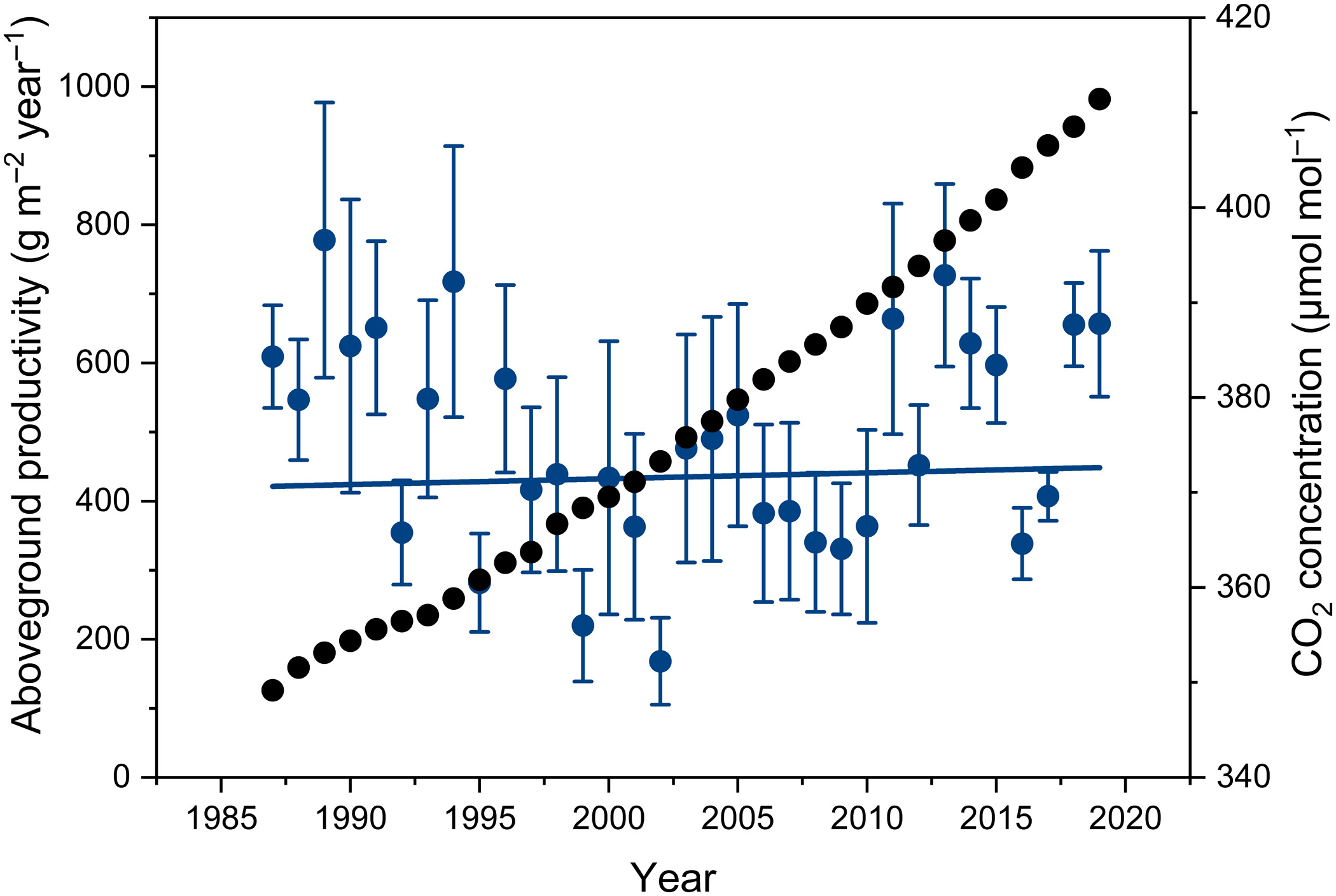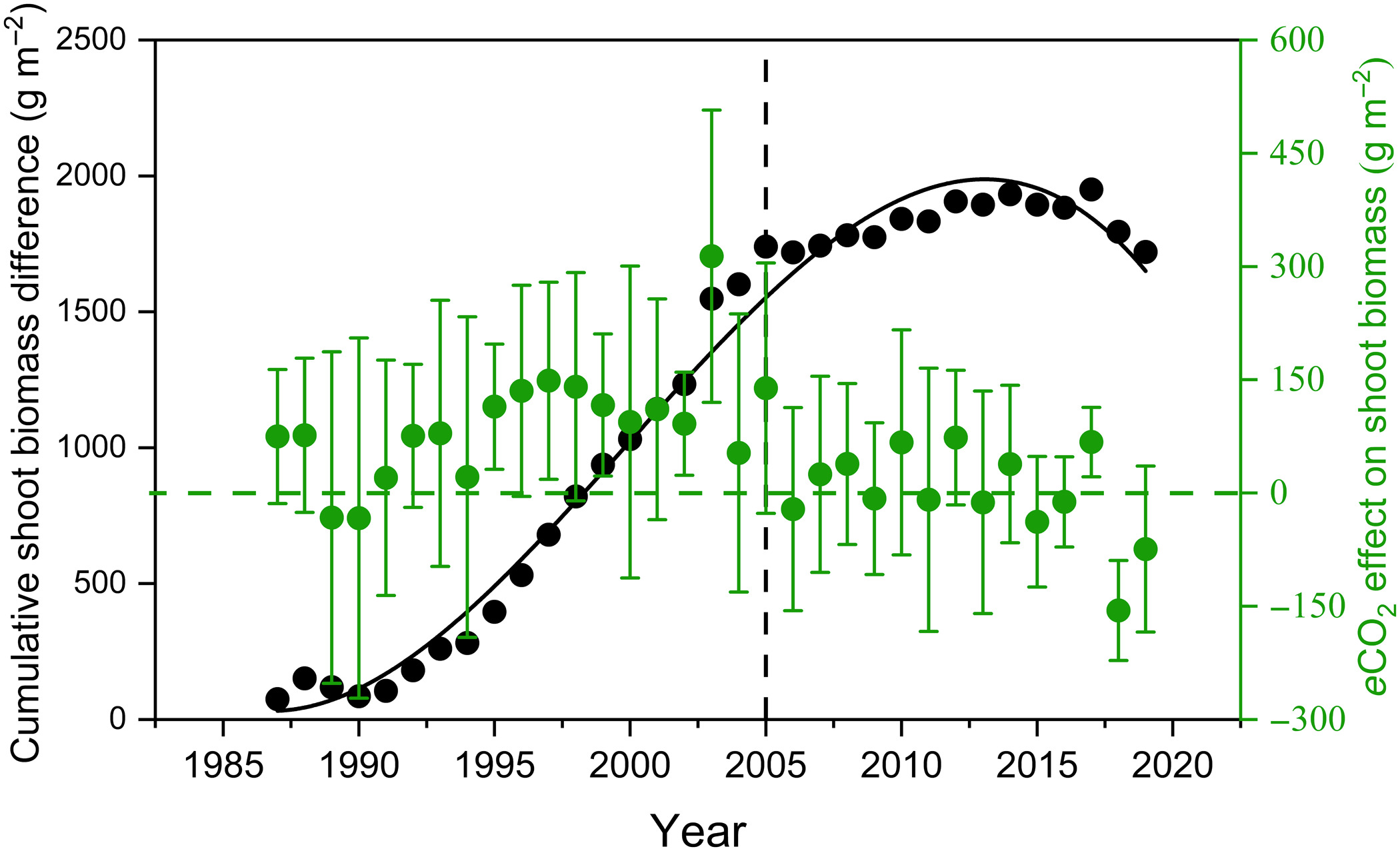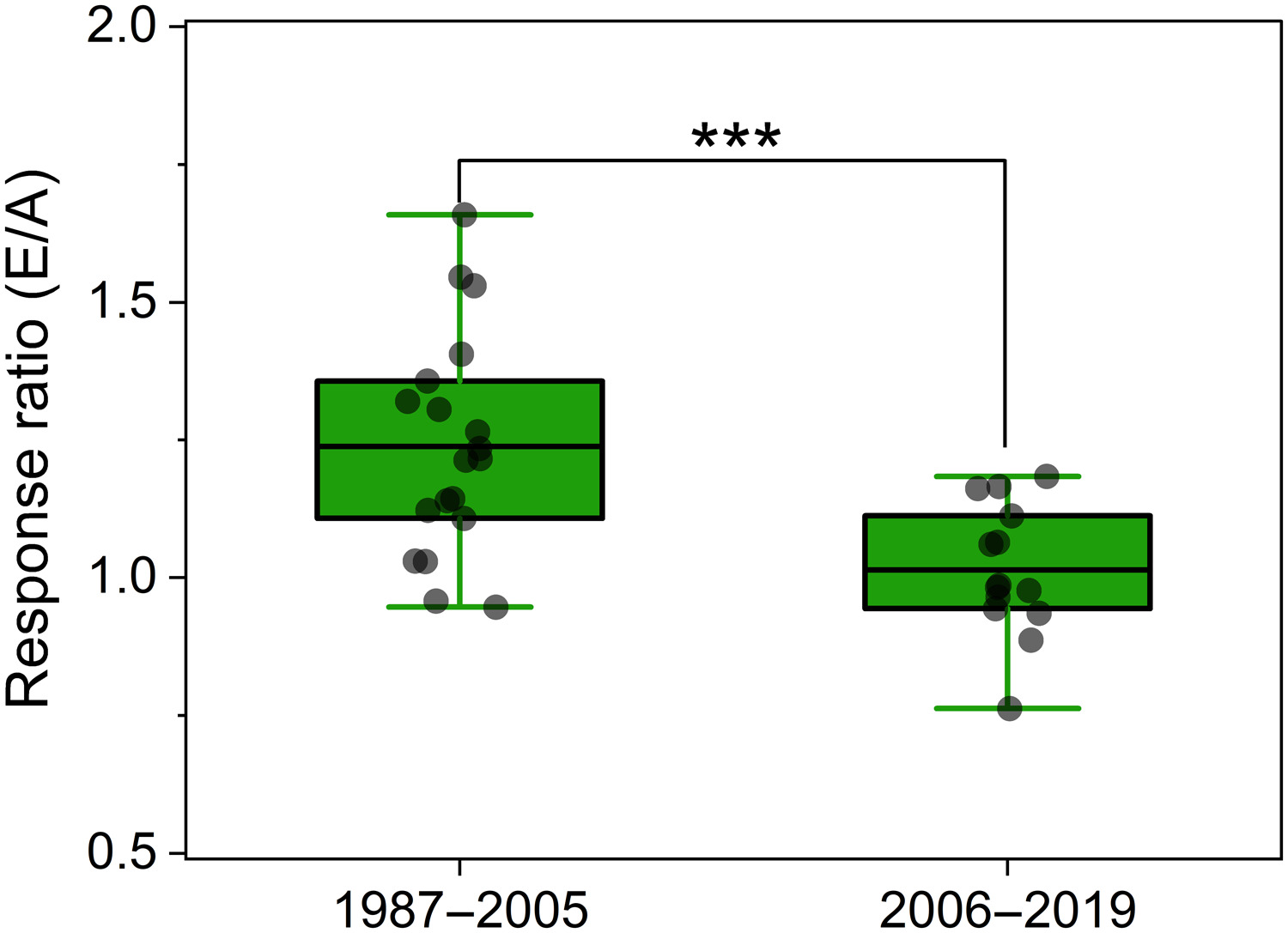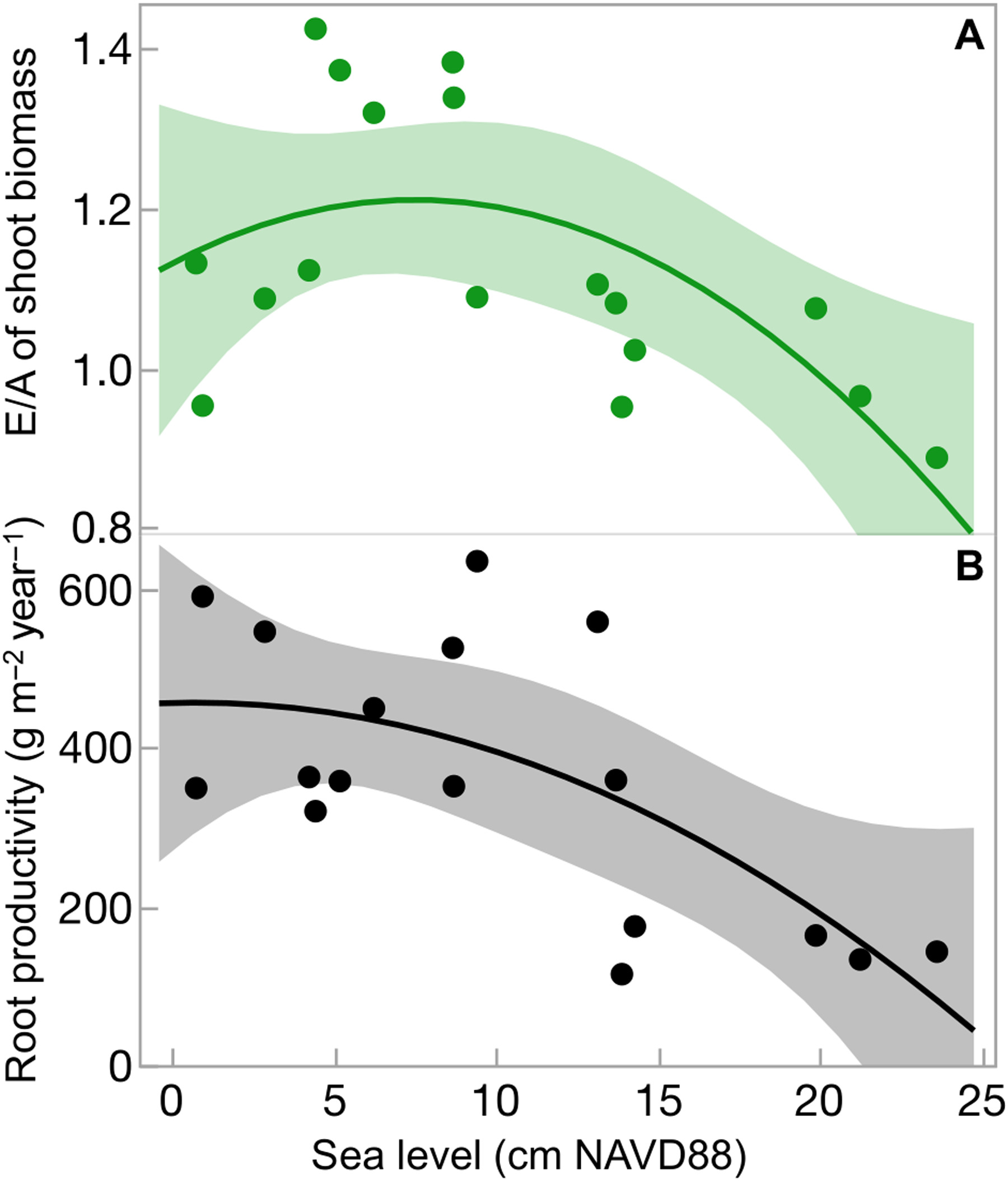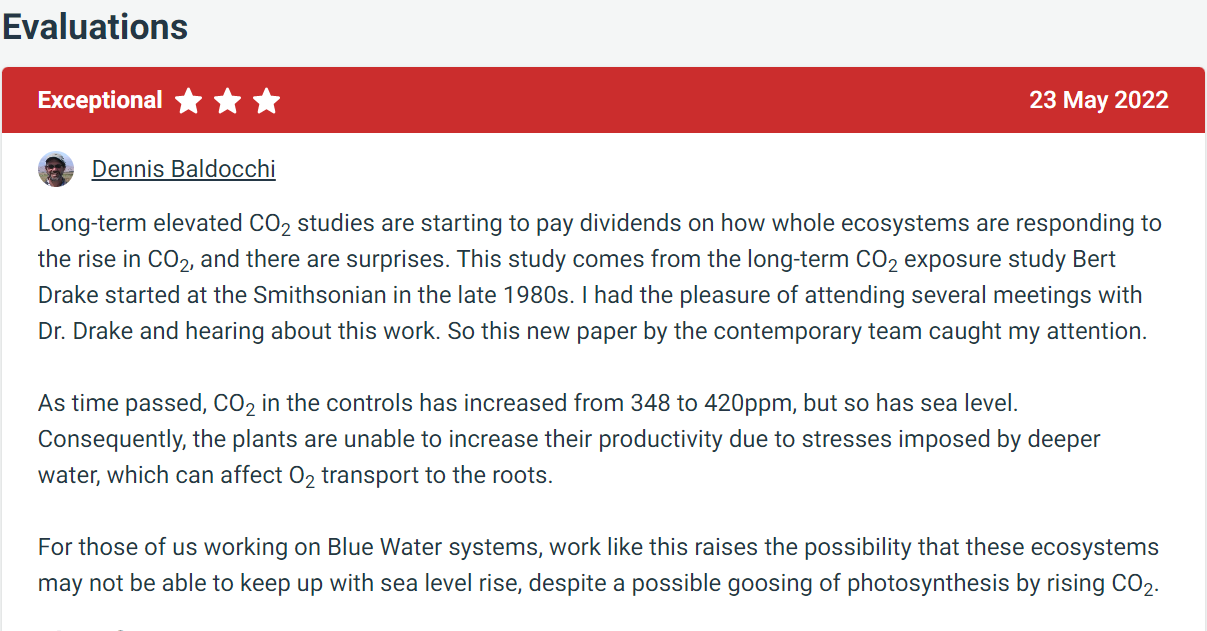Accelerated sea-level rise is suppressing CO2 stimulation of tidal marsh productivity: A 33-year study
Fig1. Ambient CO2 and shoot biomass
Fig2. Shoot biomass responses to eCO2
Fig3. Early and late phases of eCO2 responses
Fig4. Shoot biomass eCO2 response to sea level
Accelerating relative sea-level rise (RSLR) is threatening coastal wetlands. However, rising CO2 concentrations may also stimulate carbon sequestration and vertical accretion, counterbalancing RSLR. A coastal wetland dominated by a C3 plant species was exposed to ambient and elevated levels of CO2 in situ from 1987 to 2019 during which time ambient CO2 concentration increased 18% and sea level rose 23 cm. Plant production did not increase in response to gradually rising ambient CO2 concentration during this period. Elevated CO2 increased shoot production relative to ambient CO2 for the first two decades, but from 2005 to 2019, elevated CO2 stimulation of production was diminished. The decline coincided with increases in relative sea level above a threshold that hindered root productivity. While elevated CO2 stimulation of elevation gain has the potential to moderate the negative impacts of RSLR on tidal wetland productivity, benefits for coastal wetland resilience will diminish in the long term as rates of RSLR accelerate.
Professor Zhu Chunwu is the first author and corresponding author of this research. It was recommended by professor Dennis Baldocchi from Department of Environmental Science, Policy and Management, University of California, Berkeley at Faculty Opinions on 23 May. Professor Dennis Baldocchi said, “for those of us working on Blue Water systems, work like this raises the possibility that these ecosystems may not be able to keep up with sea level rise, despite a possible goosing of photosynthesis by rising CO2.”
Evaluation by Professor Dennis Baldocchi (Source: Faculty Opinions)
Faculty Opinions is a powerful discovery tool for the qualitative assessment of published research, blending the rigor and expertise of a global Faculty of over 8,000 leading experts with superior technology. Experts of Faculty Opinions discover articles of great importance and impact in the biology and medicine, and provide commentary and expert opinion on these articles.

